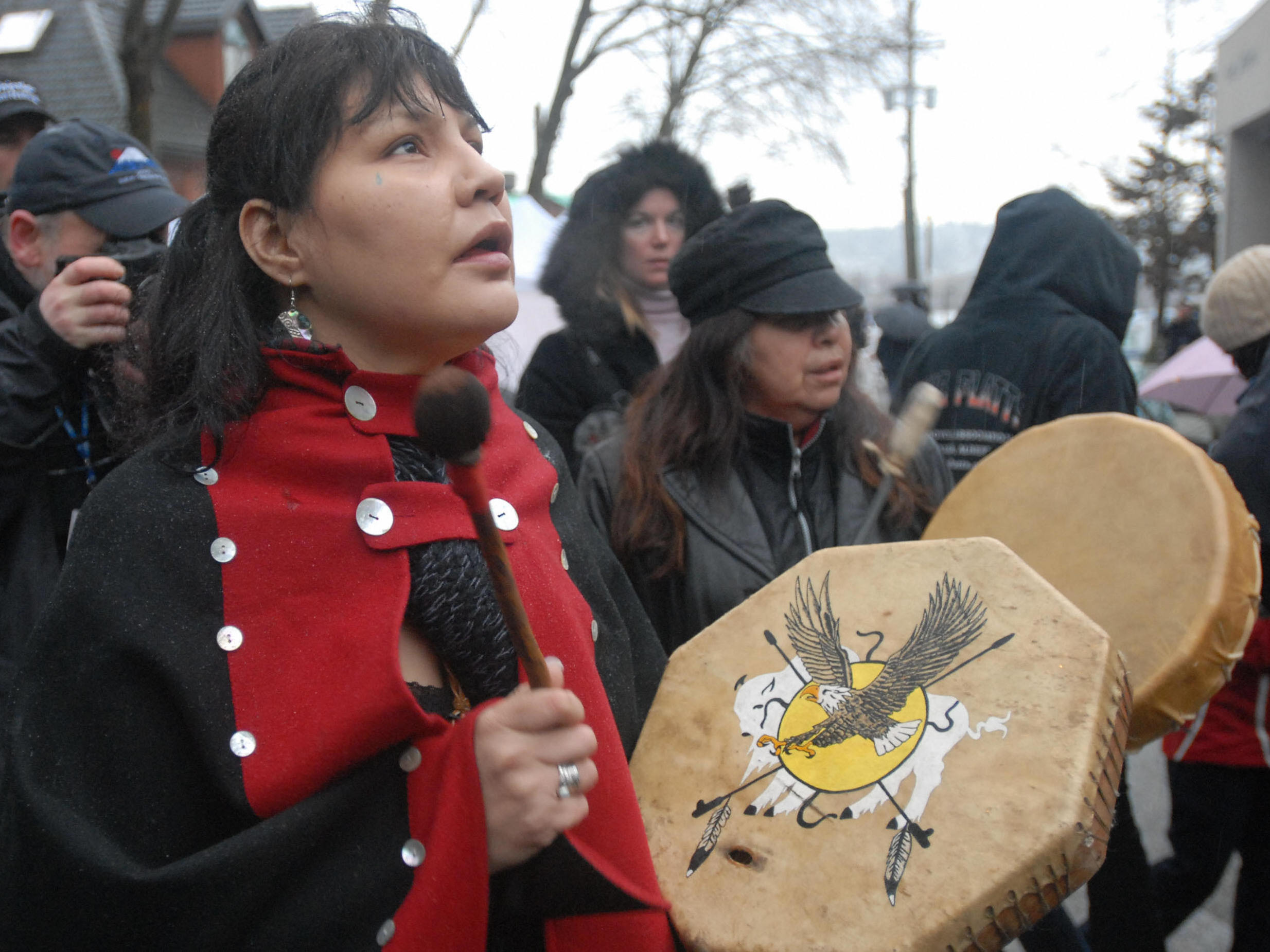Murdered and missing women and girls in Canada tragedy is genocide rooted in colonialism, official inquiry finds
State ‘actions and inactions and ideology’ blamed for allowing attackers to get away with violence over nearly 50 years

Your support helps us to tell the story
From reproductive rights to climate change to Big Tech, The Independent is on the ground when the story is developing. Whether it's investigating the financials of Elon Musk's pro-Trump PAC or producing our latest documentary, 'The A Word', which shines a light on the American women fighting for reproductive rights, we know how important it is to parse out the facts from the messaging.
At such a critical moment in US history, we need reporters on the ground. Your donation allows us to keep sending journalists to speak to both sides of the story.
The Independent is trusted by Americans across the entire political spectrum. And unlike many other quality news outlets, we choose not to lock Americans out of our reporting and analysis with paywalls. We believe quality journalism should be available to everyone, paid for by those who can afford it.
Your support makes all the difference.Thousands of Canadian women and girls were murdered or disappeared over nearly half a century in a “genocide”, according to a leaked report of a government inquiry.
Indigenous females face disproportionate violence largely because of “state actions and inactions rooted in colonialism and colonial ideologies”, the document states.
Rights groups have for decades pointed to cases of women and girls vanishing or being killed. A study by the National Institute of Justice found 84 per cent of Native American and Alaska native women have experienced violence in their lifetime and more than half have endured the violence at the hands of an intimate partner.
The inquiry report, due out on Monday but seen in advance by CBC News, says: “We do know that thousands of indigenous women, girls and 2SLGBTQQIA (two-spirit, lesbian, gay, bisexual, transgendered, queer, questioning, intersex and asexual) people have been lost to the Canadian genocide to date.”
It adds: “The fact that First Nations, Inuit, and Métis peoples are still here and that the population is growing should not discount the charge of genocide.”
The report, entitled “Reclaiming Power and Place”, says that “due to the gravity of this issue,” the inquiry is preparing a “supplementary report on the Canadian genocide of indigenous peoples according to the legal definition of genocide,” which will be posted at a later date on the inquiry website, CBC News reported.
Running to over 1,200 pages it carries at least 230 recommendations.
It comes after two and a half years of work by the National Inquiry into Murdered and Missing Indigenous Women and Girls, ordered by Justin Trudeau, the Canadian prime minister.
Estimates have put the number of indigenous women and girls who have disappeared or been murdered in Canada since the 1970s at up to 4,000, but the inquiry report says the true number may be impossible to establish.
From 2005 to 2010, the Sisters In Spirit Initiative said it confirmed 582 cases of missing and/or murdered indigenous women and girls over 20 years.
The murder of 15-year-old Tina Fontaine in the summer of 2014 gave fresh impetus to calls for a national inquiry. By 2015, the UN backed a public inquiry.
To produce the new report, the inquiry held 24 sessions, attended by at least 2,380 people, including family members of those killed or missing.
The missing and murdered indigenous women (MMIW) issue involves indigenous people in Canada and the US, including the First Nations, Inuit, Métis and Native American communities.
The inquiry website says: “Shining a light on all the causes of violence, murders and disappearances is a daunting task. But it is a necessary one. We are exposing hard truths about the devastating impacts of colonisation, racism and sexism – aspects of Canadian society that many Canadians are reluctant to accept.”
Robert Pickton, one of the world’s most notorious serial killers, who was jailed in 2007, said he butchered 49 women at his farm near Vancouver.
It was claimed that police had not taken the disappearances seriously because the women were sex workers and mostly from Canada’s indigenous community.
The death in 1971 of Helen Betty Osborne, 19, a Cree Aboriginal woman who was abducted and murdered in the street in Manitoba, prompted the wave of campaigning that finally culminated in the inquiry’s launch.
In her wake came thousands of cases of deaths and disappearances that activists say were not properly investigated.
They range from the deaths of Gloria Moody, 27, in 1969 to that of 14-year-old Aielah Saric-Auger in 2006. The Sisters in Spirit movement published a report in 2009 of the personal stories of the women and girls.
CBC News has a database of 308 cases, including 66 since 2019.
Join our commenting forum
Join thought-provoking conversations, follow other Independent readers and see their replies
Comments